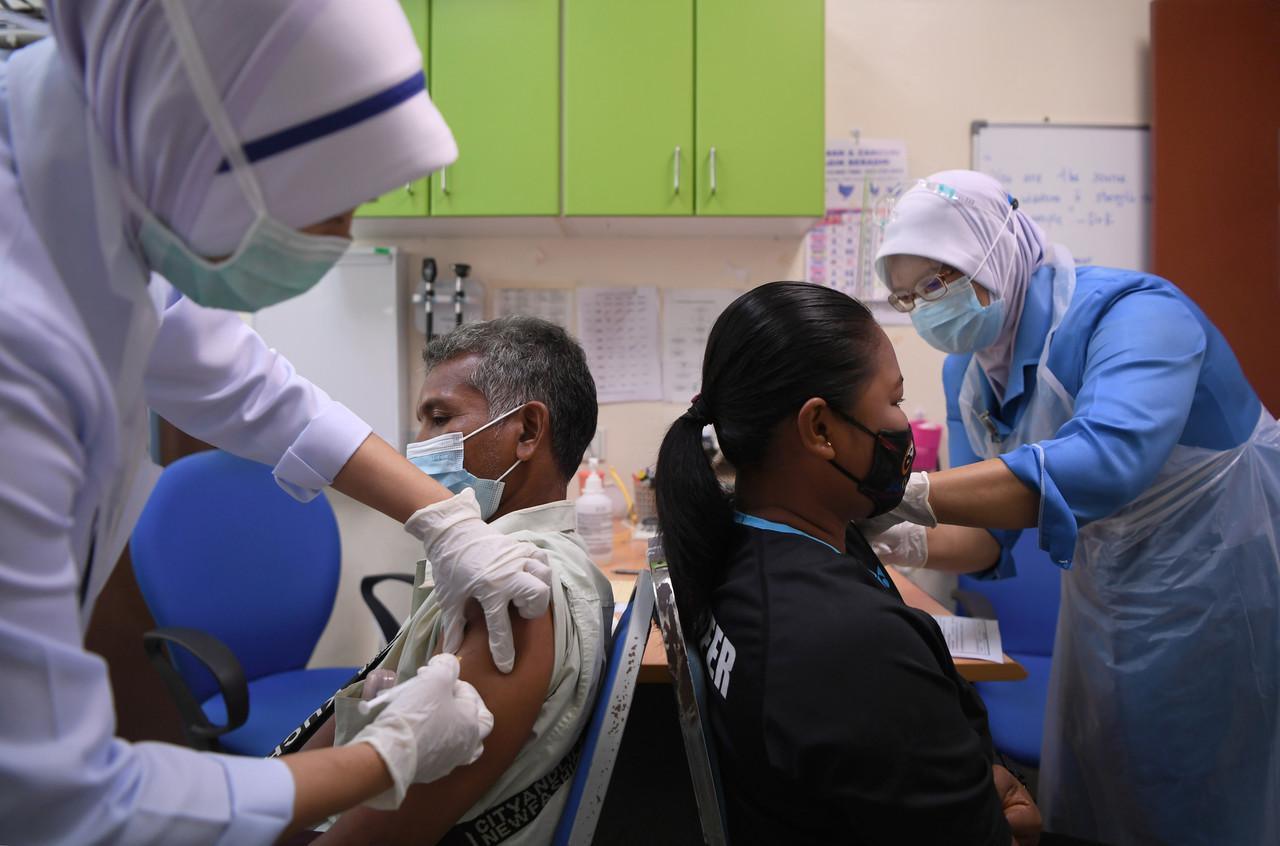If it ain’t broke, don’t fix it, health experts say on calls to revamp vaccination plan
They defend the current vaccination procedure, saying that changing things now could cause confusion and unnecessary complications.
Just In
Health experts have defended the rollout of Covid-19 vaccines in the country following criticism that Malaysia is lagging behind in the administration of jabs as it seeks to achieve its target of herd immunity against the virus by this time next year.
Those who spoke to MalaysiaNow said the current vaccination plan should be maintained, with only slight improvements to the process.
Dr Subramaniam Muniandy, president of the Malaysian Medical Association, said the registration process itself is fairly simple despite concerns over the paperwork involved as well as access to the MySejahtera app – presently the most popular mode of registration – for those in rural areas or from low-income groups.
Speaking to MalaysiaNow, he said those who do not have access to the internet or a smartphone to download MySejahtera can still register for vaccination by going to the nearest health clinic.
He also expressed support for the current vaccination plan which is divided into three phases: Phase One for frontliners; Phase Two for senior citizens, the disabled and those in high-risk groups; and Phase Three for those above 18.
“If the timetable is followed, we know in three weeks that another batch of the same vaccine needs to be delivered.
“If we wait until everyone has received at least one dose, it will be very complicated sending different amounts of different vaccines with different storage requirements for the second dose,” he said when asked about suggestions that the vaccination schedule be reshuffled in this way.
He also recommended that frontliners be fully vaccinated before the next two phases of the National Covid-19 Immunisation Programme or PICK begin.
“If we wait until everyone has received at least one dose, it will be very complicated.”
If concerns remain at that point about the pace of vaccination, he said private institutions could be allowed to purchase vaccines if the government has an adequate supply.
PICK, which was launched on Feb 24, has come under criticism by some including former prime minister Najib Razak and opposition leader Anwar Ibrahim who say the rate of vaccination should be stepped up.
Comparisons have also been made with countries like Singapore, the US and Britain.
Azrul Mohd Khalib, CEO of the Galen Centre for Health and Social Policy, acknowledged that registration for vaccination against Covid-19 remains sluggish but pointed out that the Covid-19 Vaccine Supply Access Guarantee Special Committee has responded by activating other methods of registration including online registration through its website and phone registration through dedicated hotlines.
He also spoke of an outreach programme to engage with the underprivileged such as the initiative announced yesterday by Khairy Jamaluddin, the minister in charge of PICK.
“We need to ensure that no one is left behind,” he said.
He said such efforts could also reach those who lack access to smartphones or who are not tech-savvy, communities in rural or remote areas, and senior citizens.
Khairy, in a press confernece yesterday, had announced a new campaign to ensure that those in rural areas are not left out in the vaccination drive.
Under the initiative to be coordinated by the National Disaster Management Agency, officers will be sent to rural areas and villages without internet access to manually register recipients.
“We need to ensure that no one is left behind.”
Azrul said it was also possible that people were hesitant to register for vaccination because of issues unrelated to the process such as concerns over the jabs themselves.
But he agreed with Subramaniam that it would be better to stick with the current approach of reserving the second dose rather than using the supply to administer initial doses to more people.
“There is sufficient stock of the vaccines for people in essential and critical services and functions. The target for the first phase is 500,000 people. We are now at 367,213 individuals,” he told MalaysiaNow.
Meanwhile, Dr Steven Chow of the Federation of Private Medical Practitioners’ Associations, Malaysia, suggested involving general practitioners in the rollout of jabs to boost the rate of vaccination.
“The health ministry cannot possibly do this alone in the shortest possible time frame,” he said.
He said vaccines that do not require specialised ultra-cold chain logistics should be made available at GPs’ clinics.
“By then, anyone who needs to be vaccinated who presents themselves at a GP can be vaccinated,” he added.
Khairy had previously said that PICK would involve private health services in the rollout of vaccines in the country.
At the moment, private hospitals are being used as vaccination centres for private healthcare workers under Phase One of PICK.
Subscribe to our newsletter
To be updated with all the latest news and analyses daily.
